Parth Shah
Stories
-
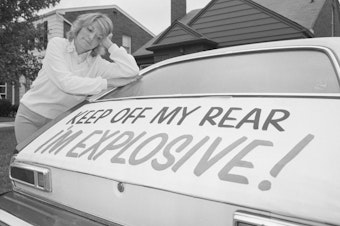
The Halo Effect: Why It's So Difficult To Understand The Past
Judy, Lyn and Donna Ulrich were driving to a volleyball game when their Ford Pinto was hit from behind by a Chevy van. The Pinto caught fire, and the three teenagers were burned to death. This week on Hidden Brain, we talk to a former Ford insider who could have voted to recall the Pinto years before the Ulrich girls were killed — but didn't. And we ask, is it possible to fairly evaluate our past actions when we know how things turned out?
-
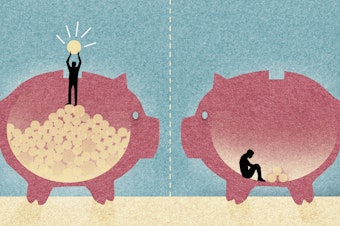
Why Nobody Feels Rich: The Psychology Of Inequality
If you've ever flown in economy class on a plane, you probably had to walk through the first class cabin to get to your seat. Maybe you noticed the extra leg room. The freshly-poured champagne. Maybe you were annoyed, or envious. Social psychologist Keith Payne says we tend to compare ourselves with those who have more than us, but rarely with those who have less. This week, we revisit our 2019 episode on the psychology of income inequality, and how perceptions of our own wealth shape our lives.
-
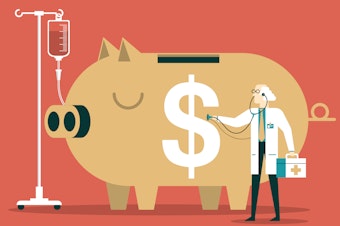
Slaying The 'Fee-for-Service Monster' Of American Healthcare
The United States spends trillions of dollars on healthcare every year, but our outcomes are worse than those of other countries that spend less money. Why? Physician and healthcare executive Vivian Lee explains the psychological and economic incentives embedded in the American model of medicine, and makes the case for a different way forward.
-
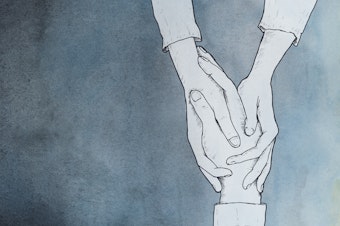
You 2.0: Empathy Gym
Some people are good at putting themselves in another person's shoes. Others may struggle to relate. But psychologist Jamil Zaki argues that empathy isn't a fixed trait. This week, in our final installment of You 2.0, we revisit a favorite episode about how to exercise our empathy muscles.
-
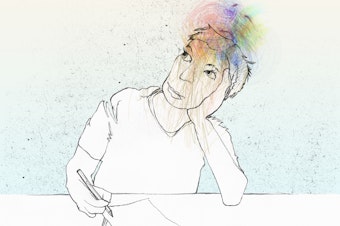
You 2.0: WOOP, WOOP!
American culture is all about positive affirmations. Dream big! Shoot for the stars! But do positive fantasies actually help us achieve our goals? This week, as part of our You 2.0 summer series, we revisit a conversation with researcher Gabriele Oettingen about how we can make our goals more attainable.
-
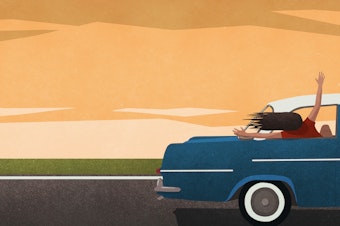
You 2.0: Our Pursuit of Happiness
Sometimes, life can feel like being stuck on a treadmill. No matter how hard you try to get happier, you end up back where you started. What's going on here? We kick off our annual You 2.0 summer series with happiness researcher Elizabeth Dunn, who explains how to fight the treadmill feeling.
-
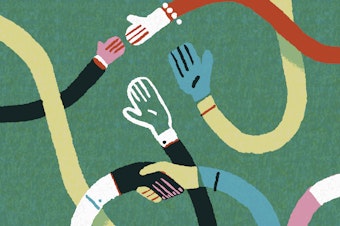
Creativity And Diversity: How Exposure To Different People Affects Our Thinking
There is great comfort in the familiar. It's one reason humans often flock to other people who share the same interests, laugh at the same jokes, hold the same political views. But familiar ground may not be the best place to cultivate creativity. Researchers have found that people with deep connections to those from other countries and cultures often see benefits in terms of their creative output. This week, we revisit a favorite 2018 episode about the powerful connection between the ideas we dream up and the people who surround us, and what it really takes to think outside the box.
-
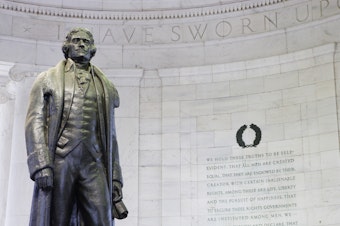
The Founding Contradiction: Thomas Jefferson's Stance On Slavery
"We hold these truths to be self-evident, that all men are created equal." These words, penned by Thomas Jefferson more than 240 years ago, continue to inspire many Americans. And yet they were written by a man who owned hundreds of slaves, and fathered six children by an enslaved woman. As we mark Independence Day this week, we return to a 2018 episode with Pulitzer Prize-winning historian Annette Gordon-Reed. We explore the contradictions in Jefferson's life — and how those contradictions might resonate in our own lives.
-

Playing Favorites: When Kindness Toward Some Means Callousness Toward Others
If we do a favor for someone we know, we think we've done a good deed. What we don't tend to ask is: Who have we harmed by treating this person with more kindness than we show toward others? This week, in the second of our two-part series on moral decision-making, we consider how actions that come from a place of love can lead to a more unjust world.
-
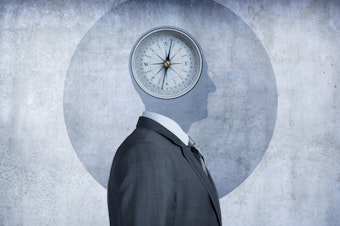
Justifying The Means: What It Means To Treat All Suffering Equally
When we are asked to make a moral choice, many of us imagine it involves listening to our hearts. To that, philosopher Peter Singer says, "nonsense." Singer believes there are no moral absolutes, and that logic and calculation are better guides to moral behavior than feelings and intuitions. This week, we talk with Singer about why this approach is so hard to put into practice, and look at the hard moral choices presented by the COVID-19 pandemic.